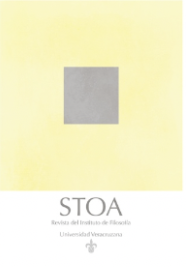Abstract
This article presents a series of considerations in favor of the understanding of the therapeutic possibilities of Dasein, taking as a guide the dialogue that Martin Heidegger had with scientists, physicians and psychiatrists during the famous Zollikon Seminars. First, we will review the different reasons and circumstances for which the German thinker, already since the 1920s, shows a marked interest in the field of psychology (especially psychiatry). We will then see the need to redirect the understanding of man's being from modern subjectivity towards the open character of Dasein. Then, it will be shown that this entity possesses the ontological structure of care, whose relationship with the world, the other and oneself becomes crucial to reconfigure the role of the "doctor-patient" or the "analyst-analyzed". Finally, the case of stress (and its link with time) is briefly addressed in order to understand the way in which the therapeutic possibilities of Dasein can be thought of.
STOA is a biannual publication edited by the Institute of Philosophy of the Universidad Veracruzana, Tuxpan, No. 29, Frac. Veracruz, C.P. 91020, Xalapa, Ver., Tel. 8154285, http://www.uv.mx/filosofia. Responsible editor: Jesús Turiso Sebastián. Exclusive Use Rights Reservation No. 04-2008-121012511200-203, granted by the Copyright Reservation Directorate of the National Institute of Copyright of the Secretariat of Public Education, ISSN: 2007-1868. Responsible for the last modification of this issue: Jesús Turiso Sebastián, Tuxpan, No. 29, Frac. Veracruz, C.P. 91020, date of last modification August 5, 2011. Distribution and digital support by the Academic Software Development Department of the Universidad Veracruzana.
The opinions expressed by the authors do not necessarily reflect the position of the editor of the publication. Reproduction by any means of the texts published in this journal may be done as long as the source is cited, including the name of the author, the name and number of the journal, and its electronic address. For more information write to revistastoa@uv.mx.
Revista Stoa is a completely free publication, with no cost for processing or receiving articles and free access.
This work is under a Creative Commons Attribution-NonCommercial-ShareAlike 4.0 International license.

